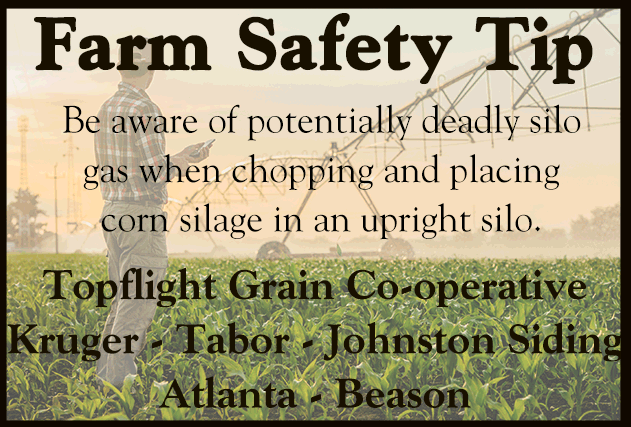|
Logan County Department of Public Health
Do not let foodborne illness spoil your holiday celebration
Plan now for a safe and healthy holiday
season
 Send a link to a friend
Send a link to a friend
 [November 15, 2022] [November 15, 2022]
The holidays are, traditionally, a time for friends
and family to gather and share a meal. It is important to practice
proper food safety measures during the holidays in order to prevent
foodborne illness. Most people do not think about food safety until
they, or someone they know, gets sick after eating contaminated
food. The Centers for Disease Control (CDC) estimates that roughly 1
in 6 Americans (48 million people) get sick, 128,000 are
hospitalized, and 3,000 die of foodborne diseases each year.
The following steps are recommended to help keep your
food safe:
• Wash your hands thoroughly with soap and water before, during, and
after preparing food.
• Thoroughly clean food-preparation surfaces often. Do this
especially between uses for preparation of raw, potentially
hazardous foods, and foods that are ready to eat.
• Rinse fresh fruits and vegetables thoroughly under running water.
• Thaw your frozen turkey or other meats properly. Frozen foods are
the safest when thawed in the refrigerator. On short notice, frozen
foods can also be thawed in the sink under cold running water.
• Cook food to its proper internal temperature. Use an accurate food
thermometer and, when taking the temperature, insert the thermometer
into the thickest portion of the food item to properly check. It is
safe to cook ground beef and pork to at least 160°F, and chicken and
turkey to 180°F. These temperatures are slightly higher than
commercial temperatures to provide a safety margin. When preparing
leftovers, potentially hazardous foods should be reheated to at
least 165°F. Visit the Illinois Department of Public Health (IDPH)
website at
www.idph.state.il.us/public/hb/hbsafefood.htm for more
cooking and food safety information.
[to top of second column] |

• If preparing a turkey, it is
safest to cook the stuffing separate from, and not inside, the
turkey as the stuffing can act as an insulator which can prevent
the turkey from reaching the proper temperature.
• Keep food out of the “Danger Zone.” Cold foods should be held
at 41°F or below while hot foods should be held at 135°F or
above. Refrigerate or freeze any perishable food within 2 hours
after serving.
• To prevent cross contamination during refrigeration, store
raw, potentially hazardous foods, such as meat and eggs,
separate from, or below, foods that are ready-to-eat.
When purchasing your food, take items home immediately for
refrigeration or freezing. Check the use-by dates when making
your purchase. Refrigerated food should be cold to the touch and
frozen food should be solid. Canned goods should be free of
dents, cracks, or bulges. Check produce for freshness. Meat
should have a good color, be firm to the touch and free of slime
and foul odors. For more information regarding food safety,
contact LCDPH at 217-735-2317 or visit their website at
WWW.LCDPH.ORG.
[Don Cavi, MS, LEHP
Public Health Administrator
Logan County Department of Public Health]
 |